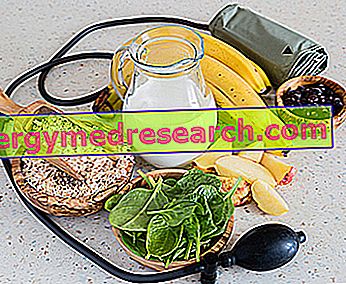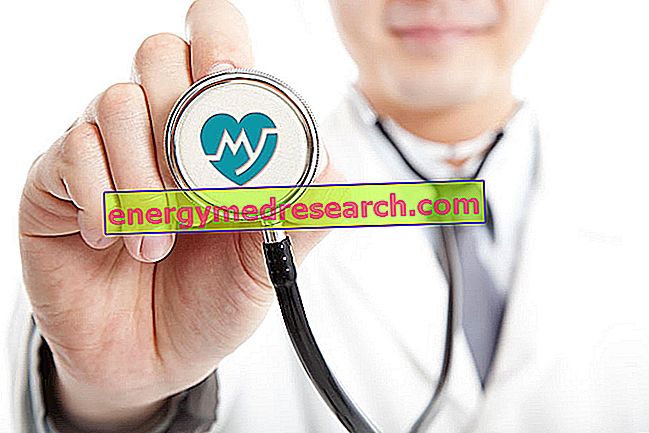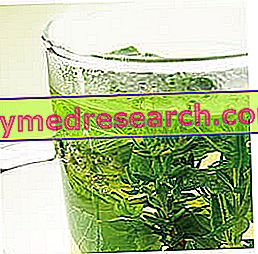Blood pressure is different in the arterial and venous circulation. Between the two, the flow most frequently subjected to pathological changes is the arterial flow, which exerts maximum and minimum pressure on the vessel wall (systolic and diastolic).

The blood pressure is expressed with the unit of measurement millimeters on a column of mercury (mm / Hg).
Alterations in blood pressure can be due to excess (high blood pressure and possibly full hypertension) and to defect (low blood pressure).
Paradoxically, the first condition is harmful but asymptomatic and the second, although clearly perceptible, causes only a lot of weakness.
The normal pressure values are 70mmHg / 110mmHg or 80mmHg / 120mmHg (minimum / maximum pressure).
Chronic hypertension contributes to the onset of vascular events even of the heart and brain; these may be responsible for permanent death / disability. Moreover, it causes degeneration of kidneys, eyes and other tissues.
High blood pressure may be due to:
- Genetic predisposition.
- Obesity.
- Sedentary lifestyle.
- Nutritional factors.
What to do
- Especially in the presence of a family predisposition, keep blood pressure readings constantly monitored.
In case of positive diagnosis for high blood pressure or pre-hypertension:
- Contact a dietician to:
- Lose weight: remember that every 10kg of fat disposed of (especially the abdominal fat) the pressure tends to drop by 5-20mmHg.
- Structure a diet for hypertension:
- Reduction of harmful nutritional factors.
- Increased beneficial nutritional factors.
- Increase the level of physical activity.
- Stop smoking.
- Avoid alcohol.
- Evaluate the relevance of remedies, supplements and natural therapies.
- Reduce other risk factors for cardiovascular events:
- Obesity.
- Type 2 diabetes mellitus.
- Hypercholesterolemia.
- Hypertriglyceridemia.
- Oxidative stress.
- If nutritional and behavioral therapy has no effect, the doctor will assess the relevance of a pharmacological treatment.
What NOT to do
- After an initial diagnosis of high blood pressure, skip the routine checks or avoid contacting your doctor.
- Eat foods that can aggravate hypertension.
- Drink alcohol and smoke.
- Store overweight.
- Stay sedentary and do not practice or partially respect the indications on physical activity.
- Ignore the presence of other risk factors for atherosclerosis and cardiovascular events:
- Obesity.
- Pre-diabetes or type 2 diabetes mellitus.
- Hypercholesterolemia.
- Hypertriglyceridemia.
- Neglecting drug therapies to lower blood pressure.
What to eat
To reduce high blood pressure it is essential to follow a specially structured diet rich in:
- Omega 3: are eicosapentaenoic acid (EPA), docosahexaenoic (DHA) and alpha-linolenic acid (ALA). They play a protective role towards all the diseases of the spare, including high blood pressure. The first two are biologically very active and are contained above all in: Sardinian, mackerel, bonito, alaccia, herring, alletterato, ventresca of tuna, needlefish, algae, krill etc .. The third, instead, is less active but constitutes a precursor of EPA; it is mainly contained in the fat fraction of certain foods of vegetable origin and in the related oils of: soy, linseed, kiwi seeds, grape seeds, etc.
- Potassium: increasing dietary intake decreases blood pressure and increases urinary sodium excretion. Reaching a dose equal to 4000mg / day it is possible to reduce the arterial pressure up to 4mmHg. It is contained in all foods, with the exception of seasoning fats. However, the foods that best lend themselves to increasing their dietary intake are fresh and raw vegetables and fruits.
- Magnesium: like the previous one, it favors the lowering of blood pressure. Doses of 120-973mg / day (over 200% of the requirement) have been shown to be effective in reducing hypertension. It is mainly found in foods of vegetable origin; in particular: whole grains and bran, oilseeds, cocoa, vegetables etc.
The consumption of extra virgin olive oil is inversely proportional to high blood pressure. This may not necessarily be due to oleic acid (omega 9); in fact, this dressing fat is also rich in polyunsaturated fatty acids, vitamin E, polyphenols and phytosterols, etc.
For those suffering from other metabolic disorders or overt metabolic syndrome it may be useful to increase the intake of:
- Omega 6 fatty acids.
- Omega 9 fatty acids.
- Vitamin A, vitamin C and vitamin E.
- Lecithins.
- Polyphenols and phytosterols.
What NOT to Eat
- Sodium: directly and indirectly related to high blood pressure, it should be eliminated from the diet. We are talking about the added sodium, that is the one present in cooking salt (sodium chloride) and used as a preservation medium for: cured meats, sausages, canned meat, canned fish, pickled or salted foods, etc. They are also rich: salty snacks, fast food and junk food in general.
- Saturated and hydrogenated fats, the latter above all in trans conformation: they are related to an increase in blood pressure, cholesterolemia and systemic inflammation. Saturated fats are present especially in: fatty cheeses, cream, fatty cuts of fresh meat, sausages and cold cuts, hamburgers, frankfurters, palm kernel and palm oil, other bifractionated oils, etc. Hydrogenated fats, which may have a high percentage of chains in trans form, are contained above all in: hydrogenated oils, margarines, sweet snacks, salty snacks, packaged baked goods, etc.
- Alcohol: it is a molecule directly implicated in the pathological increase of blood pressure. All beverages are involved, from the lightest to spirits. It should however be specified that one or two units of red wine per day are not considered cardiovascular risk factors, on the contrary. Thanks to the concentration of polyphenols they seem to perform a preventive function.
- Licorice: widely used for gastric problems (for example gastritis and reflux), however, it has the side effect of increasing blood pressure a lot.
Natural Cures and Remedies
- Motor activity: especially for sedentary subjects, prolonged aerobic activity (brisk walking, cycling, rowing, swimming, running etc.) favors the reduction of high blood pressure.
- Food supplements:
- Of omega 3, based on oils derived from fishery products and seeds:
- Cod liver oil: rich in omega 3 essential fatty acids (EPA and DHA), vitamin D and vitamin A.
- Krill oil: is part of zooplankton and is rich in omega 3 essential fatty acids (EPA and DHA).
- Seaweed oil: rich in omega 3 essential fatty acids (EPA and DHA).
- Wheat, linseed, sesame germ oil etc. Contain ALA and vitamin E.
- Arginine: it is an amino acid precursor of nitric oxide, an essential molecule for the maintenance of vascular endothelial function. A few grams of arginine a day could have a positive effect.
- Diuretics: they are products able to increase renal filtration. By promoting the production of urine, the volume of blood plasma and pressure is reduced. It is advisable not to overdo it and avoid them in the presence of a drug therapy. Some are: pineapple, birch, artichoke, cucumber, walnut leaves, onion, horsetail, fennel, apple, nettle, elderflower, corn stigmas and dandelion.
- Hypotensive plant extracts: they appear to act differently from diuretics, but still have a beneficial effect on high blood pressure. Some are: garlic, onion, rauwolfia, birch, hawthorn, cardiac, ginkgo biloba, blueberry, orthosiphon, mistletoe, red vine, olive, periwinkle, uncaria, lily of the valley, ligustico, carcadè (hibiscus), evodia and Iranian yarrow.
Pharmacological care
They are of different kinds:
- Diuretics: like natural foods, but more effectively, these drugs increase the production and expulsion of urine by decreasing blood volume and pressure.
- Sympatholytic or adrenergic inhibitors: they are divided into alpha and beta blockers. They are receptor antagonists in the sympathetic system and prevent interaction with adrenergic molecules that promote vasoconstriction.
- Calcium channel blockers: they act on the smooth muscles of blood vessels and block the calcium ion channels. In practice, they prevent the contraction of the muscle fibers and keep the vessel walls relaxed.
- Renin-angiotensin system inhibitors: this link is the basis of pressure regulation. By reducing the renin-angiotansin system these drugs promote the decrease in blood volume and dilate the arteries.
- Direct acting vasodilators.
- Hypertensive emergency drugs: they are not a therapy but an instant remedy for severe cases.
Prevention
- Maintain a normal weight.
- Practice regular motor activity, especially aerobics.
- Avoid smoking and alcoholism.
- Carry out a correct diet, limiting the foods advised against and increasing those beneficial for high blood pressure.
Medical Treatments
There are no other medical treatments than drug therapy to treat high blood pressure.



